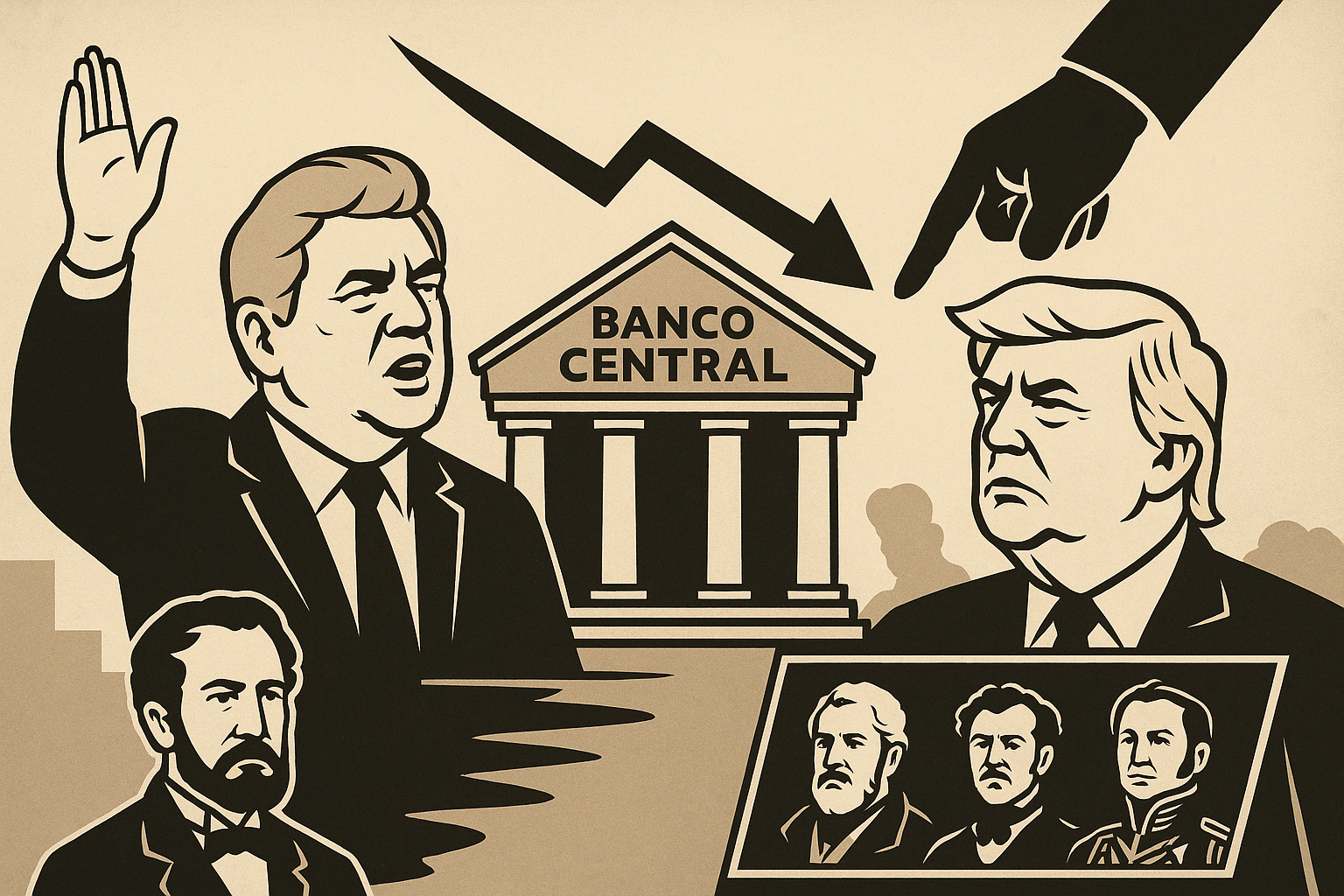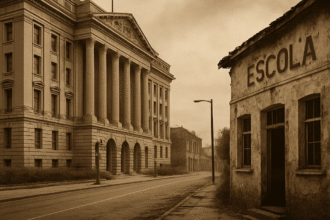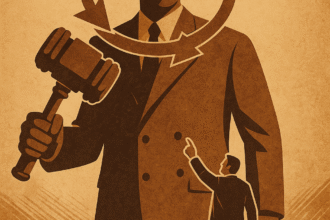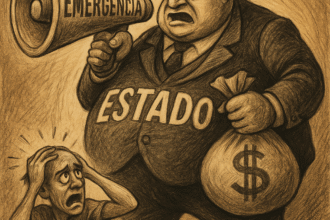Trump and Lula have more in common than their voters would like to admit. Both present themselves as saviors of the nation, great leaders who will fight against “the elites,” “the bureaucrats,” or “the bankers.” Both claim to be victims of hidden forces—sometimes the Central Bank, sometimes the press, sometimes China. Both, deep down, reproduce the worst of Latin American political tradition: the cult of the “strong man” and the refusal to accept responsibility for their own economic decisions.
The problem is that, by assuming this role of “liberators of the nation”, they produce the same damage as their caudilloso predecessors: inflation, distrust, capital flight and widespread impoverishment.
It is no exaggeration to place Donald Trump on the same shaky pedestal as figures like Perón, Getúlio or Hugo Chávez. He represents an economic setback as dangerous as Lula’s — and with the same symptoms: rhetorical nationalism, contempt for market freedom, and an authoritarian fetish for regulating things they do not understand.
Blaming the Central Bank: old excuse, new theater
In Latin America, it is common practice to blame the Central Bank for everything. Lula, faithful to the populist playbook, once again attacked Roberto Campos Neto, insinuating that the Central Bank’s “traps” and Trump’s “madness” were behind the rise in food prices:
“It is not possible that Brazil, being one of the largest food producers in the world, should have price increases like we are experiencing. And then you will see: it is a trap that the Central Bank has set. It is Trump's madness, who is putting taxes on everything.”
Source: Veja, 2024
Yes, you read that right: Lula blames Trump for Brazil’s inflation. This blame-shifting is a hallmark of populism — and Trump is following exactly the same script.
Trump, the new leader of the North
Trump, now campaigning and seeking re-election, is already laying the groundwork to blame the Fed for any poor economic results. According to the Wall Street Journal:
“Trump is ready to make Fed Chairman Jerome Powell his scapegoat if the economy slows. It’s a repeat of his behavior during his first term.”
Source: WSJ, 2024
The irony is brutal: the same Trump who forced unsustainable interest rate cuts now wants to blame the central bank for the effects of that. A perfect reflection of the economic caudillismo that plagues countries like Venezuela and Argentina — now imported with a New York accent.
Same recipe, same results
Authoritarian populists share a golden rule: never admit your mistakes. Inflation? Blame the bankers. Unemployment? Blame the press. Recession? Blame the opposition.
This political farce is not new. In the 19th century, Simón Bolívar already warned:
“The freedom of the New World is a chimera.”
In the 20th century, Juan Bautista Alberdi — the great Argentine liberal thinker — wrote:
“To govern is to populate, yes. But to govern is, first and foremost, to respect property, commerce and freedom.”
Twenty-first-century populists have learned none of this. They prefer to inflate their egos and their public spending — and then blame others when the bill comes.
The fetish for regulation
Trump doesn’t just print money and attack the Fed. He also takes particular pleasure in regulating the economy—as long as the regulation favors his friends and penalizes his political enemies. In the article published in Power & Market, we have already pointed out:
“The State has a fetish for regulating what it does not understand. When it cannot control by force, it tries to control through bureaucracy.”
Read more here
Trump, Lula, Fernández or López Obrador: they are all part of a lineage of politicians who believe they can shape the economy with speeches and decrees. But the market, as Hayek said, is a spontaneous process of coordination — not a palace game.
Conclusion: The real enemy of freedom
The problem is not the bankers, nor the exporters, nor China, nor the algorithms. The problem is the politicians who believe they are bigger than economic reality. Who deny the laws of scarcity, supply and demand. Who believe they can print wealth, distribute growth and control prices with the stroke of a pen.
Trump and Lula are more alike than their voters would like to admit. They both embody the economic savior syndrome, but, as the history of Latin America shows, the greater the savior, the greater the damage.
If you want to understand why these speeches always end in impoverishment, inflation and loss of freedom, keep following the Power & Market.
Because here, we don't romanticize caudillos. We unmask them.





